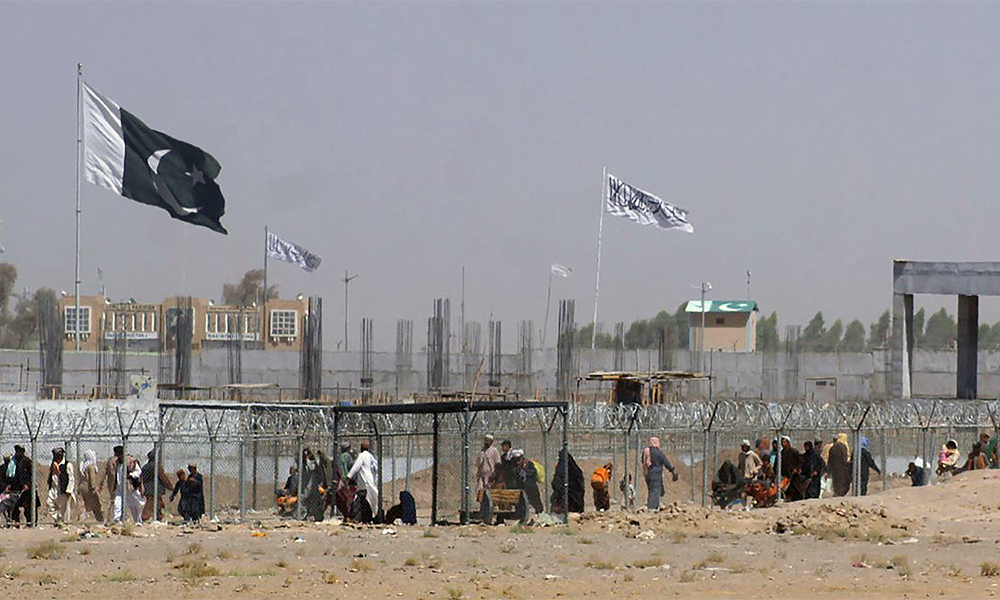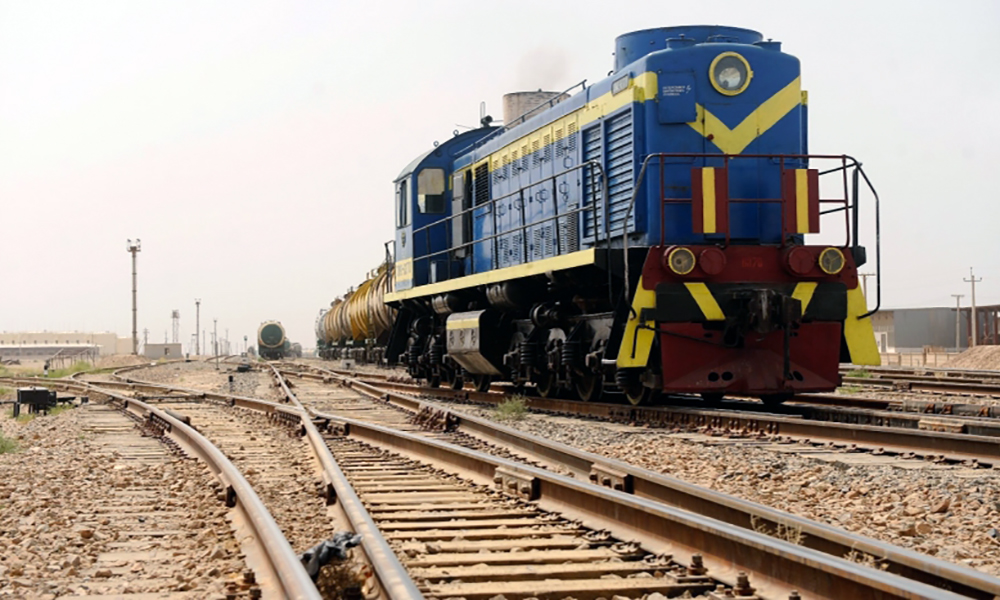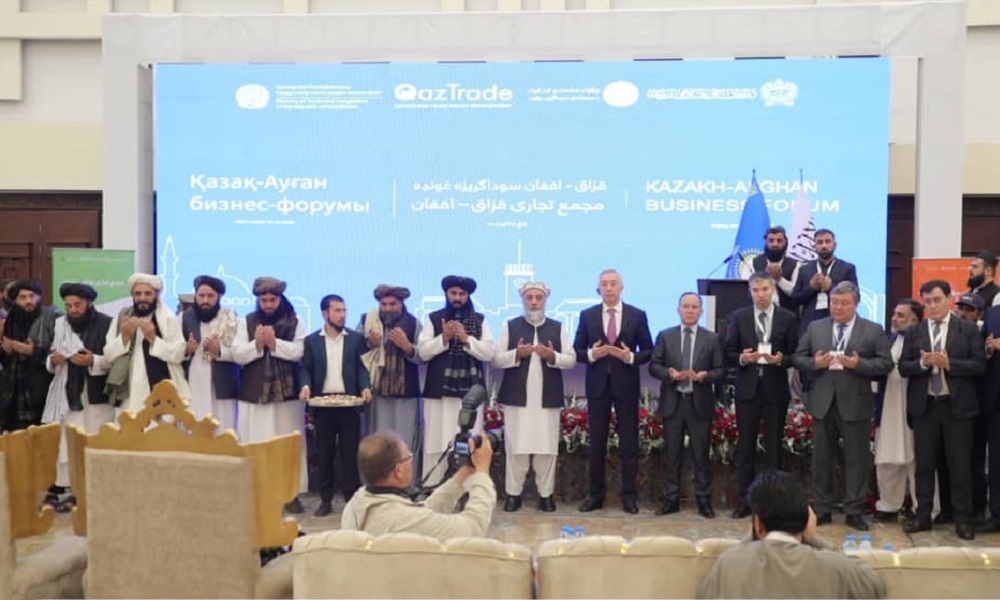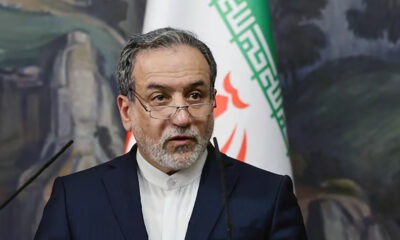Business
Pakistan’s Chaman border, closed for days due to fear of Afghans influx

A day after protesters took to the streets of Chaman in Pakistan to demand the re-opening of the border crossing into Afghanistan, scores were seen waiting by the border road on Saturday.
Hundreds of people are stranded on both sides of the Chaman border crossing that has been closed for almost two weeks now, Reuters reported.
“This border has been closed for the last 13 days. We have been sitting here for the past 13 days for it to open. We come here at 8:00 in the morning, but by 10:00 we go back, because they (officials) are saying it could not open for months. Whatever money we had earned, we have spent all of it here,” said Sami Ullah, a laborer from Baghlan province who had gone to Karachi for work.
Pakistani officials have said the border has been temporarily closed apparently due to the fear of an influx of Afghans who want to leave their homeland after the Islamic Emirate of Afghanistan (IEA) seized power in August.
Chaman border crossing , the second-largest commercial border point with Afghanistan after the Torkham commercial town in Khyber Pakhtunkhwa, links with Spin Boldak in the Afghan province of Kandahar, and is used by thousands of labourers, as well as traders, from both countries on a regular basis.
On Friday, thousands of traders took to the streets of Chaman, some on horseback, demanding that the border be opened, Reuters reported.
According to reports, thousands of Afghans have been gathering near the border in their efforts to sneak into Pakistan which has already announced that it was not in a position to accept more refugees.
Already around three million Afghan refugees are already living in Pakistan, some for more than three decades, since the invasion of their country by the Russians in 1979.
Pakistan officials say they fear around a million more would enter the country if border regulations are relaxed.
Business
Pakistan’s deputy PM discusses Trans-Afghan Railway Line project with Uzbek FM
On Thursday, in a post on X, Pakistan’s Foreign Ministry said Dar hoped that the three countries would soon sign the framework agreement for this important regional connectivity project.

Pakistan’s Deputy Prime Minister and Foreign Minister Ishaq Dar held a telephone conversation with the Foreign Minister of Uzbekistan, Saidov Bakhtiyor Odilovich, on Thursday to discuss the Trans-Afghan Railway Line Project.
This comes after Dar’s recent visit to Kabul, where he held talks with officials on the planned Uzbekistan-Afghanistan-Pakistan Railway Line Project.
The three neighboring countries signed an agreement in February 2021 to construct a 573-kilometer railway line through Afghanistan, connecting landlocked Central Asia to Pakistan seaports, with an estimated cost of $4.8 billion to enhance regional economic connectivity.
On Thursday, in a post on X, Pakistan’s Foreign Ministry said Dar hoped that the three countries would soon sign the framework agreement for this important regional connectivity project.
The two leaders also discussed strengthening bilateral relations, enhancing economic and trade connectivity, promoting people-to-people ties, and exchanged views on current regional and international issues.
Business
Afghanistan’s growth prospects remain uncertain amid global uncertainty: World Bank report
According to the report, in Afghanistan, despite aid cuts, the economy is estimated to have grown by 2.5 percent in FY24-25, which was slower than the pace of population growth.

Amid increasing uncertainty in the global economy, South Asia’s growth prospects have weakened, with projections downgraded in most countries in the region, including Afghanistan.
Stepping up domestic revenue mobilization could help the region strengthen fragile fiscal positions and increase resilience against future shocks, said the World Bank in its twice-yearly regional outlook – the South Asia Development Update – which was released on Wednesday.
According to the report, in Afghanistan, despite aid cuts, the economy is estimated to have grown by 2.5 percent in FY24-25, which was slower than the pace of population growth.
Growth is forecast to increase only moderately to 2.2 percent in 2025/26, the World Bank report stated.
Coinciding with the release of the South Asia report was the World Bank’s Afghanistan Development Update report which explained the situation in more detail.
Stating that while the country’s economy is gradually recovering, the outlook remains uncertain due to growing fiscal pressures, a widening trade deficit and persistent poverty and food insecurity.
The report stated that these factors continue to strain households and hinder inclusive growth.
However, Afghanistan recorded its second consecutive year of growth in 2024, the World Bank stated, adding that the recovery was largely driven by the agriculture sector.
Manufacturing and services remained subdued due to an unfavorable business environment, persistent export barriers and declining foreign aid.
Modest gains in private consumption and real estate investment contributed to growth, the report stated, adding that rising imports widened the trade deficit, increasing external vulnerabilities.
At the same time, rapid population growth and the return of refugees continue to strain job creation and public service delivery, further deepening the fragility of the economy.
Deflation meanwhile persisted in 2024, with food prices having declined sharply. Non-food inflation remained stable. Persistent deflation continued in 2024,
Poverty, food insecurity, and malnutrition however remained pressing challenges and despite modest wage growth, high unemployment and restrictions on women continue to strain livelihoods, the report stated.
Early this year, 14.8 million people faced food shortages, while acute malnutrition – now affecting 4.7 million women and children – is worsening. The World Bank warned that without urgent action, human capital development will be further undermined.
Fiscal pressures meanwhile remained high as domestic revenue mobilization, though relatively strong, is insufficient to offset the sharp decline in aid.
The report also stated that exports declined in 2024, while imports surged – widening the trade deficit.
The increase in imports however was driven by rising industrial demand and substitution of domestic consumer goods.
The afghani (AFN) currency, which had appreciated significantly in 2023 due to strong foreign inflows stabilized with slight depreciation in 2024 but the banking sector remained fragile.
The World Bank reported that economic growth is expected to slow to 2.2 percent in 2025 amid aid disruptions, before gradually recovering to 2.5 percent in 2026–27.
The organization however warned that while Afghanistan’s youth remain a vital source of resilience and untapped potential, urgent action to expand job opportunities for them is needed.
Business
Afghanistan-Kazakhstan trade soars by 32%, target set at $3 billion, says Azizi

Acting Minister of Industry and Commerce, Nooruddin Azizi, stated at the end of the first day of the Kazakh-Afghan trade exhibition that trade volume between the two countries has increased by 32 percent.
He added that both sides aim to raise bilateral trade to $3 billion.
According to a statement from the Ministry of Industry and Commerce, Azizi welcomed the visit of the Kazakh delegation to Afghanistan and expressed appreciation for Kazakhstan’s humanitarian assistance, support, and collaboration, including in the area of digitalizing Afghan government institutions.
Azizi emphasized the importance of connecting Central Asia to South Asia through Afghanistan and discussed expanding trade agreements, holding exhibitions of products and goods in both countries, establishing trade centers in Kabul and Almaty, and facilitating exports and imports between the two nations.
Kazakh Deputy Prime Minister Serik Zhumangarin also stressed that Afghanistan and Kazakhstan are key strategic partners in the region. He described the holding of the business forum as significant for enhancing economic cooperation, establishing new trade relations, exchanging experiences, and promoting joint initiatives.
Zhumangarin stated: “We believe a stable and prosperous Afghanistan is a key factor for peace and stability in the region and has the potential to become a major logistical hub connecting Central and South Asia.”
The exhibition of Kazakhstani products and goods was held at the invitation of the Ministry of Industry and Commerce, with the participation of 25 Kazakh companies.
-

 International Sports3 days ago
International Sports3 days agoIPL 2025: Robo-Dog ‘Champak’ explained
-

 Latest News5 days ago
Latest News5 days agoPolio vaccination campaign launched in Afghanistan
-

 International Sports5 days ago
International Sports5 days agoIPL 2025: 14-year-old Vaibhav Suryavanshi becomes youngest IPL player
-

 Latest News4 days ago
Latest News4 days agoAriana Afghan Airlines increases flights to China
-

 World4 days ago
World4 days agoPentagon chief Hegseth shared sensitive Yemen war plans in second Signal chat, source says
-

 Latest News3 days ago
Latest News3 days agoAfghan-American appointed to lead US policy on Afghanistan
-

 Latest News4 days ago
Latest News4 days agoChina invites various Afghan delegations to attend Shanghai forums
-

 Regional3 days ago
Regional3 days agoIran’s top diplomat to visit China on Tuesday
























